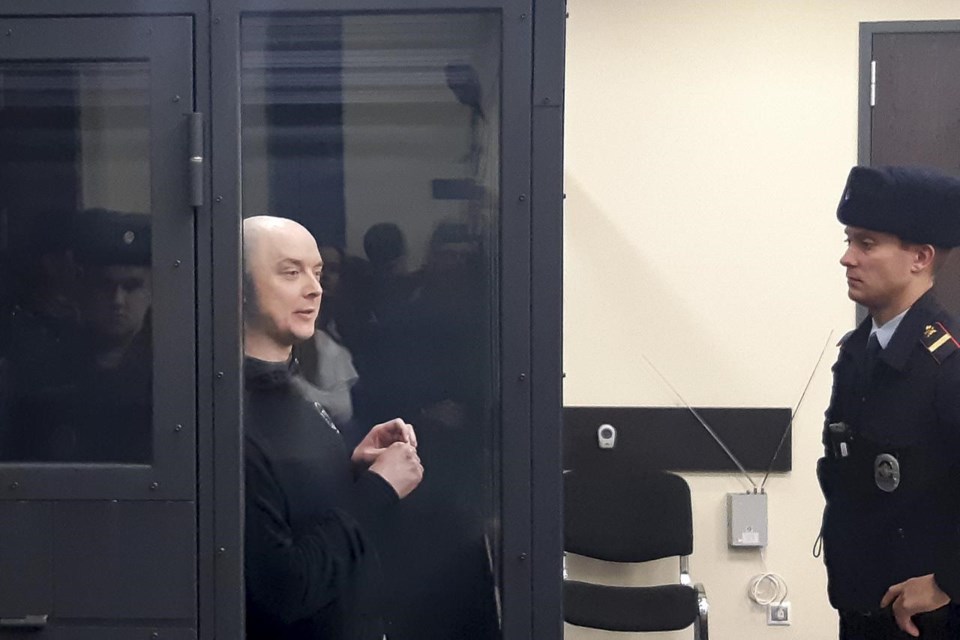MOSCOW (AP) — A court in the Russian capital on Wednesday rejected an appeal from a former journalist who was convicted of treason and given a 22-year prison sentence following what was widely seen as a politically motivated trial.
The appeals court upheld the September sentence handed to Ivan Safronov, who worked as a military affairs reporter for leading business newspaper Kommersant before becoming an adviser to the head of Russian space corporation Roscosmos.
His conviction and sentencing came amid a sweeping crackdown on the media and Kremlin critics during the fighting in Ukraine.
Safronov was accused of passing military secrets to Czech intelligence and a German national. He insisted on his innocence and rejected the charges as “absurd.” He argued he did nothing illegal and had published while working as a journalist all the information gathered from sources in government agencies and military industries.
Safronov, who has been in custody since his July 2020 arrest in Moscow, said he never had access to any classified documents and that investigators failed to produce any witness testimony to back the espionage charges.
His colleagues denounced the verdict as utterly unfounded and pushed for Safronov's release, maintaining Russian authorities may have wanted to revenge for his reporting that exposed military incidents and shady arms deals.
The European Union has urged Russian authorities to drop all charges against Safronov and “release him without any conditions,” denouncing “systematic repressions of the regime against independent journalism.”
Rights activists, journalists, scientists and corporate officials who have faced treason accusations in Russia in recent years have found it difficult to defend themselves because of secrecy surrounding their cases and a lack of public access to information.
Safronov’s father also worked for Kommersant, covering military issues after retiring from the armed forces. In 2007, he died after falling from a window of his apartment building in Moscow.
Investigators concluded he had killed himself. Some Russian media outlets questioned the official version, pointing to his intent to publish a sensitive report about secret arms deliveries to Iran and Syria.
The Associated Press



